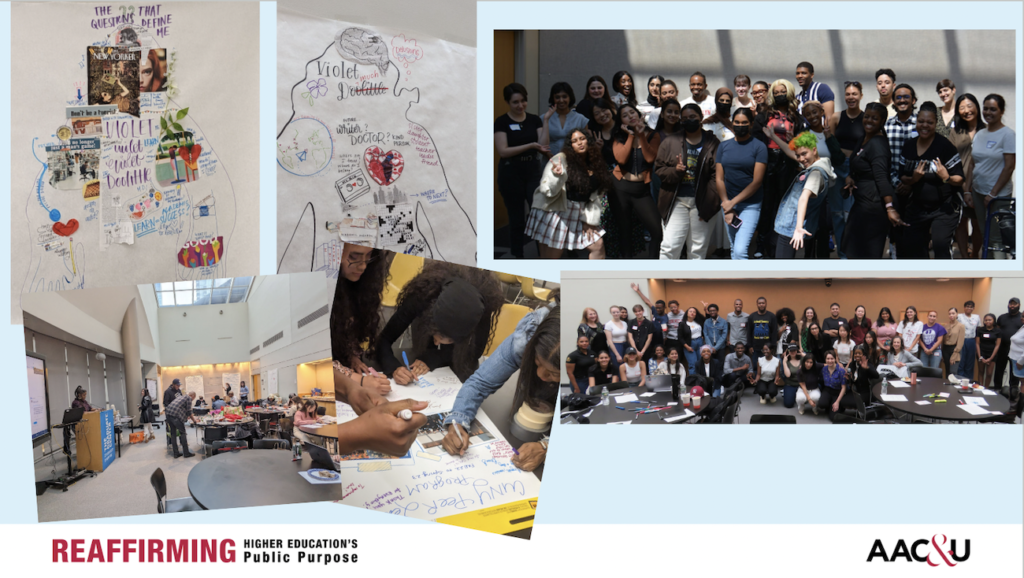This post was originally published on the Futures Initiative website.

The CUNY Peer Leaders (CPL) traveled to Washington, DC, to present an interactive panel at the 2025 American Association of Colleges & Universities (AAC&U) conference in January. Part of the Humanities Alliance (Phase II), CPL is a cross-campus community-based program in New York City that promotes undergraduate scholarship and creative work in the Humanities and supports students in developing leadership skills to implement within their neighborhoods and colleges. Welcoming 40 undergraduates from 18 two- and four-year colleges each year, CPL helps students to connect their college education to their lives, careers, and communities.
When we think about the concept of “Reaffirming Higher Education’s Public Purpose,” which was this year’s conference theme, we reject the traditional, dated models and practices of Western education and instead underscore examples in academia in which innovative teaching practices have been implemented successfully. This holistic and interactive session focused on student-centered pedagogical practices, and how they are applied when working with diverse undergraduate students, many of whom are from marginalized and underserved communities.

Most of our Leaders come from underserved communities, are first-generation, and people of color, mentored by a team of graduate students led by a trained counselor, CPL Director Lauren Melendez, who, like many of our Leaders, was a first-generation college student and is now a first-generation doctoral student. Melendez presented an overview of the program’s equity-minded structure and history, and shared some practical mentoring strategies and exercises that anyone at any college or university could use. CPL Coordinator Jackie Cahill presented the data collected in exit surveys, demonstrating our program outcomes (see below).

CPL’s Research Associate, Dr. Christina Katopodis, co-author with Cathy N. Davidson of The New College Classroom, which won AAC&U’s 2023 Frederic W. Ness Book Award, shared findings from her assessment of CPL and reflections on the program’s innovations, including activities from the biweekly CPL student meetups that are easily adaptable to any classroom. In addition, we had two undergraduate Leaders on the panel, Enrique Rodriguez Brito and Violet Doolittle, who presented their experiences of the program from their perspectives as college students.

Together, we facilitated an entry ticket activity, asking audience members to write down responses to this prompt: “In one word or a short phrase, please share one thing that higher ed needs more of so we can better serve the public good.” We went around the room and everyone shared what they had written on their card. Everyone had a chance to contribute to the conversation, and there was enough time to share because they read from their cards, staying on script. A wider discussion with the audience followed, focused on higher education’s public purpose; empowering students to determine what “success” looks like for themselves; and practical ways to support students’ holistic well-being in and outside of the classroom.
The “Advancing Public Purposes” meeting track was aligned with our mission to attain and share knowledge for the public good. Housed at CUNY’s Graduate Center, a primarily PhD-granting institution, CPL helps students develop their confidence, professional development, and their ability to thrive in college and see themselves as current and future change makers. CPL guides students’ reflections on the ways their accomplishments can help them become leaders in their neighborhoods and apply their knowledge(s) in service of the public good.
Attendees left the session with a few inspiring and practical tools and methods they could use immediately in the spring semester and beyond to help students build connections between their college education and civic engagement.
Following their presentation, we attended the AAC&U plenary session and took the Leaders on an enrichment outing to the National Museum of African American History and Culture.


